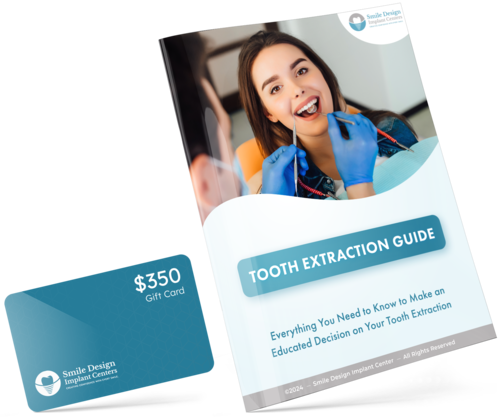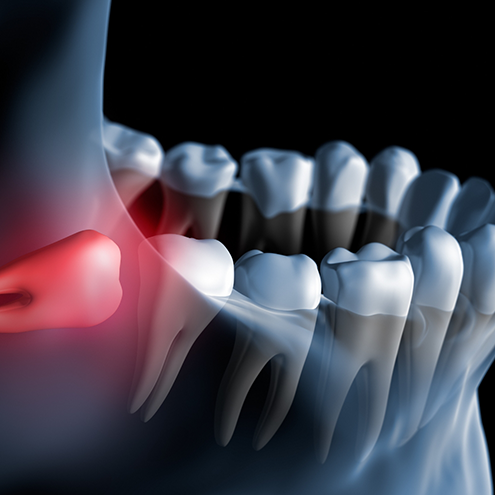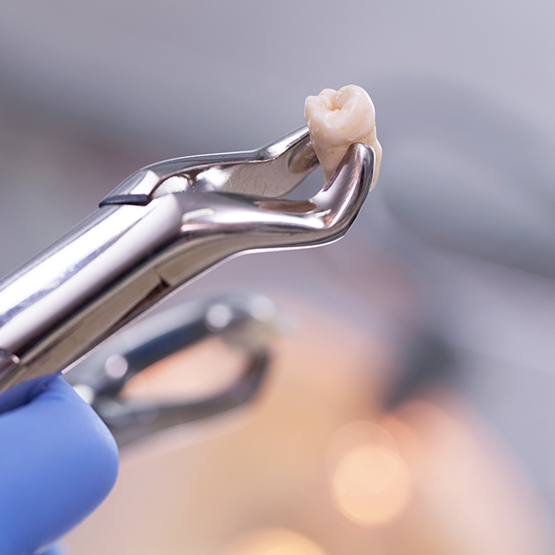It’s never easy to hear that you’re going to need to undergo tooth extraction; after all, the thought of parting ways with one of the pearly whites you’ve had your whole life isn’t a fun one to process. But you have nothing to fear or worry about; tooth extractions in Reno are only performed when there’s no other realistic way to save a tooth, or if it’s threatening your oral health. We can also ensure this process is as smooth and comfortable as possible for patients. Contact our office today to learn more about how we can remove troubled teeth to better safeguard your smile!
Why Choose Smile Design Implant Centers for Tooth Extractions?
- Prosthodontist & Oral Surgeon On-Staff
- Accommodating, Patient-Friendly Team and Office
- Numerous Tooth Replacement Options Available

The Guide Will Show You
- Step-By-Step Overview
- Common Procedures
- Common Questions
- And More!
When Is a Tooth Extraction Necessary?
A tooth may need to be removed in the following scenarios:
- Severe tooth decay or a cavity
- Decay that has spread to the inner pulp of the tooth
- Impacted wisdom teeth that can cause infection and pain
- Fractured teeth that cannot be repaired with fillings or other restorations
- Infection or gum disease that has caused severe damage to the soft tissue and bone surrounding the tooth
- An abscess
How Is a Tooth Extraction Performed?
To perform a tooth extraction, the dentist first numbs the area around the tooth with a local anesthetic. After the tooth is extracted, the dentist may put sutures to better assist in healing and prevent infection. Depending on how the extraction is done, you may need to have stitches removed after a few days or a few weeks.
Once the extraction is completed, you will be provided with instructions to follow for proper healing and steps to take to avoid complications like dry socket. In most cases, the recovery period lasts a few days to a week. The amount of time you need to wait before you can return to work or school will vary based on the type of work that you do.
For the first few days after the extraction, you should rest and avoid strenuous physical activity to reduce the risk of bleeding and possible injury. You should also avoid drinking from a straw for the first few days after the procedure to prevent dislodging the blood clot that has formed in the socket. Generally, over-the-counter painkillers are enough to manage any discomfort you may have following an extraction. However, if the pain persists, you should contact your dentist as soon as possible, as there may be more issues that need to be addressed.
Types of Tooth Extraction
There are times when tooth removal may be your only viable option, especially when wisdom teeth need to be removed. When teeth cannot be saved and must be removed, your dentist may recommend one of the following procedures:
- Simple extraction – The dentist will use a tool called an elevator to loosen your tooth gently from its socket without harming the surrounding bone or gums.
- Surgical extraction – This procedure is recommended if the teeth are impacted or have broken off at the gum line. Your dentist will surgically remove all the damaged teeth and any surrounding tissue that may be infected.



